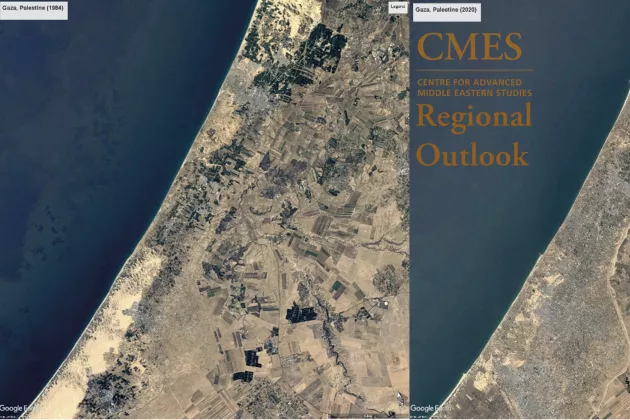Earlier this fall, on September 10th, almost 1.5 million Jordanians (31% of eligible voters) cast their ballots to elect the country’s 20th parliament. The election’s major victor was the Jordanian Muslim Brotherhood’s political arm, the Islamic Action Front (IAF), which made significant gains by winning 31 out of 138 seats. Despite Islamist headwinds, however, the parliament will still be dominated by tribal, centrist, and pro-government members. Behind the election result lies complex political maneuvering by the regime, the impact of the neighboring war on Gaza, and a deteriorating national economy.
What is the parliament’s role in Jordanian politics?
Elections in autocracies like Jordan - Freedom House categorizes Jordan as “Not Free” - are different from elections in democracies or “hybrid regimes” like Turkey or Hungary. While members of parliament are elected in relatively free, albeit not fair, elections, once installed, the parliament’s powers are limited. The monarch, King Abdullah II, not only appoints the prime minister, who then forms the government, but the monarch can also dissolve the parliament at will and frequently does so. Yet, despite the parliament’s toothlessness, there are many reasons to pay attention to last week’s election results. Not only do they give us a rare glimpse of public sentiment, but opposition groups, like the IAF, can also use the parliament as a staging ground to push for more political competition going forward.
Why did the Islamists succeed?
Jordan analysts anticipated to assess the impact of recent electoral reforms introduced in 2022, as recommended by King Abdullah II’s so-called “Royal Committee to Modernize the Political System.” For decades, the regime has designed the electoral system to yield political outcomes that it desires, and the 2022 reforms were no exception. Overall, the reforms address two domestic challenges facing the regime.
First, electoral reforms are meant to de-tribalize the parliament, undercutting the dominance of tribes that, by dictating policy discussions, often jeopardize the king’s economic reform agenda. For example, in the new electoral system, voters cast two votes—one in a local list where tribal candidates typically dominate—and one in a national list where nationwide political parties compete. The national list is supposed to favor political parties based on ideological platforms at the expense of tribes with more local ties. The idea is to keep increasing the proportion of candidates elected from the national list in the coming elections.
Second, the electoral reforms are designed to limit the influence of the country’s only well-organized oppositional force, the Muslim Brotherhood party, the Islamic Action Front. Curbing the IAF not only neutralizes a potent political rival to the regime; with its domestically conservative and geopolitically radical platform, a strong IAF risks frustrating the regime’s political agendas. Therefore, the electoral reform reduces barriers to entry of smaller parties competing with the IAF while removing obstacles for youth and female candidates who can disrupt the male-dominated conservative party.
However, given the Islamists election success, it appears that efforts to de-tribalize parliament trumped efforts to inhibit the Islamists. For instance, the IAF benefited from the national list, winning 18 out of the list’s 41 seats. Even in the runup to the elections, authorities may have sensed that the IAF stood to gain. In June, the party sent a letter to Prime Minister Bishr Al-Khasawneh, complaining of “electoral harassment” by the kingdom’s security services against the party’s candidates and supporters.
How were the Jordanian elections affected by the War on Gaza?
Electoral reform was not the only reason the IAF fared well. The war on Gaza also played a role. There has been a huge public uproar in Jordan over Israel’s violence in Gaza; this outrage benefited the IAF, which is not only supportive of Hamas but also calls for the termination of Jordan’s 1994 peace treaty with Israel. The IAF’s radical stance resonates with a large part of Jordanians, many of whom belong to families expelled from Palestine from 1948 and onwards.
Their radical geopolitical stance also allows the IAF to distance itself from politics as usual in Jordan, embodied by King Abdullah, who walks a political tightrope by maintaining amicable relations with the West while rhetorically supporting the Palestinian cause. For example, on the one hand, Jordan has maintained diplomatic relations with Israel and even shot down Iranian missiles directed toward Israel in Iran’s retaliatory attack in April. At the same time, the King called on the new prime minister, the Harvard-educated technocrat Jafar Hassan, to “mobilise all efforts to support the steadfastness of our Palestinian brothers” and to “stop the attacks and blatant violations of humanitarian principles and international law.”
Some political commentators even speculate that the IAF gains were if not encouraged, at least tolerated by the regime as part of an effort to deliver a message to the US and the West that supporting Israel’s extreme levels of violence in Gaza will only serve to bolster Islamist political forces in the region.
Finally, it should be noted that aside from electoral reform and the war on Gaza, the parliamentary elections were marred by Jordanians low enthusiasm for the political process. Voter turnout of 31% is a flattering number bolstered by high turnout in tribal areas where citizens are mobilized to support their tribe’s candidate. In the non-tribal areas, like Amman and Zarqa, voter turnout typically hovers around 10%. Jordan’s deteriorating economy and the parliament’s inability to deliver any reprieve from economic austerity and immiseration imposed by the International Monetary Fund and the regime - whether in the form of subsidies removal, tax hikes, or higher living costs - add to Jordanians’ cynicism over the parliamentary process.





